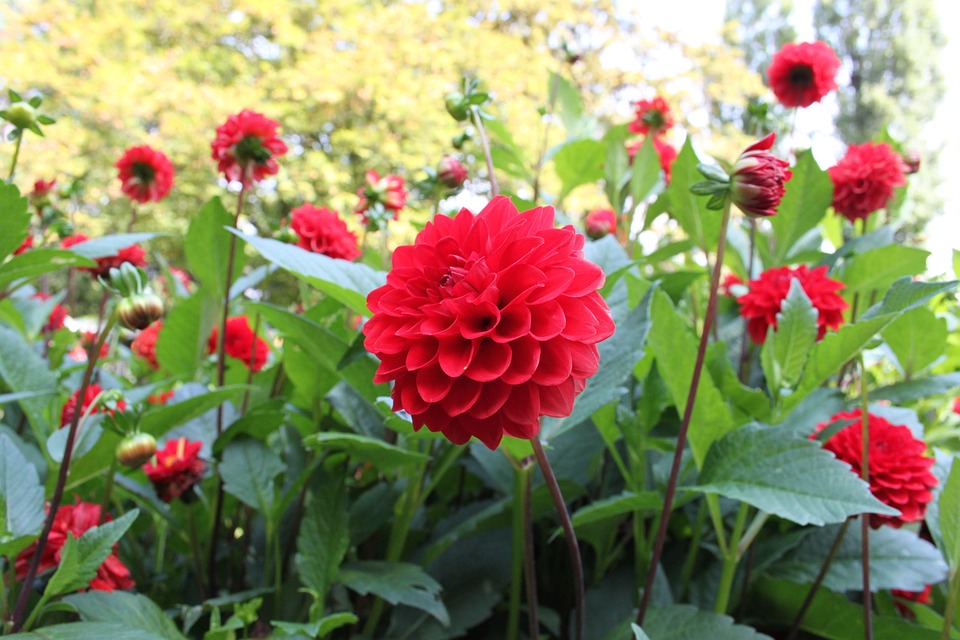All Categories
Featured
Table of Contents
The Role of Organic Gardening in Climate Change Mitigation
Organic gardening is not only beneficial for individuals and communities but also plays a vital role in mitigating the effects of climate change. By adopting organic gardening practices, individuals can contribute to carbon sequestration and reduce their carbon footprint.
One of the key ways organic gardening helps combat climate change is through the use of organic matter in the form of compost and mulch. Composting converts organic waste into nutrient-rich soil amendments, effectively trapping carbon in the soil. This process helps offset greenhouse gas emissions by removing carbon dioxide from the atmosphere and storing it in the soil for an extended period.
In addition to carbon sequestration, organic gardening practices also promote soil health and biodiversity. Healthy soils act as a carbon sink, absorbing and storing carbon. By avoiding the use of synthetic fertilizers and pesticides, organic gardeners encourage the growth of beneficial microorganisms and fungi in the soil, enhancing its ability to capture and store carbon.
Furthermore, organic gardening helps reduce reliance on fossil fuel-intensive agricultural practices. Conventional agriculture relies heavily on fossil fuel-based inputs such as synthetic fertilizers and pesticides, which contribute to greenhouse gas emissions. By minimizing or eliminating the use of these inputs, organic gardeners reduce their carbon footprint and help combat climate change.
Organic gardening also promotes water conservation, another crucial factor in climate change mitigation. By implementing techniques like mulching and responsible irrigation practices, organic gardeners can reduce water usage and minimize the strain on freshwater resources.
Overall, organic gardening offers a holistic and sustainable approach to gardening that aligns with efforts to combat climate change. By adopting these practices, individuals can contribute to carbon sequestration, promote soil health and biodiversity, reduce reliance on fossil fuels, and conserve water. Embracing organic gardening is not only beneficial for the environment but also allows individuals to connect with nature and make a positive impact on the planet.
Related Products:

The Joy of Harvesting Organic Fruits from Your Garden
One of the most rewarding experiences in organic gardening is harvesting the fruits of your labor. There is a sense of satisfaction and joy in plucking ripe, juicy fruits directly from your garden and savoring their flavors. Organic gardening ensures that the fruits you grow are free from harmful chemicals, making them healthier and tastier.
When it comes to harvesting fruits, timing plays a crucial role. Each fruit has its own indicator of ripeness, such as color, texture, or aroma. For example, a ripe watermelon will have a hollow sound when tapped and a sweet fragrance. By observing these signs, you can determine the perfect time to harvest your fruits.
Once your fruits are ready to be picked, handle them with care to avoid any damage. Use sharp pruning shears or a knife to cut the fruits from the plant, leaving a small stem attached. This helps to prolong their freshness and prevents bruising.
After harvesting, enjoy the fruits immediately or store them properly to maintain their quality. Some fruits, like berries, are best consumed fresh. Others, such as tomatoes or melons, can be stored for a few days in a cool, dry place. Remember to wash your fruits before eating them to remove any dirt or residue.
Harvesting organic fruits is not only a delightful experience for your taste buds but also a great way to connect with nature. It allows you to appreciate the hard work and dedication that goes into growing your own food. So, grab a basket and start enjoying the bountiful harvest from your organic garden!
Tips for Harvesting Organic Fruits:
- Observe the ripeness indicators of each fruit.
- Handle fruits gently to avoid damage.
- Use sharp pruning shears or a knife to cut fruits.
- Leave a small stem attached to the fruits.
- Consume fresh berries right away.
- Store other fruits properly in a cool, dry place.
- Wash fruits before eating to remove dirt and residue.
Recommended Products:
2. Rebel Gardening: A beginner’s handbook to organic urban gardening
3. Teaming with Microbes: The Organic Gardener's Guide to the Soil Food Web, Revised Edition
5. Organic Gardening for Beginners: An Eco-Friendly Guide to Growing Vegetables, Fruits, and Herbs

#24 The Power of Native Pollinators: Maintaining Ecosystem Balance in Organic Gardens
When it comes to maintaining a balanced ecosystem in organic gardens, native pollinators play a vital role. These are the insects, birds, and other creatures that naturally pollinate plants, facilitating the reproduction of many food crops and wildflowers.
Why are native pollinators important?
Native pollinators have evolved alongside native plants and have developed highly efficient and specialized techniques for transferring pollen from one flower to another. Unlike honeybees, which are non-native and often kept and managed by beekeepers, native pollinators have specific adaptations that allow them to effectively pollinate specific plant species.
How do native pollinators contribute to ecosystem balance?
Native pollinators play a crucial role in maintaining biodiversity and ecosystem balance. By pollinating a wide range of plant species, they ensure the survival of various plant populations, which in turn provide habitat, food, and shelter for other animals. Furthermore, native pollinators are often more resilient to local environmental conditions and are better suited to handle changes in climate or habitat loss compared to non-native species.
How can gardeners support native pollinators?
Gardeners can provide habitat and resources for native pollinators by planting a diverse array of native flowering plants. These plants should offer nectar and pollen sources throughout the growing season. Additionally, creating nesting areas such as bee hotels and leaving bare patches of soil for ground-nesting bees can support native pollinators.
What are the benefits of supporting native pollinators?
Supporting native pollinators in organic gardens not only helps maintain ecosystem balance but also promotes better crop yields. Increased pollination results in higher fruit and seed production, enhancing the overall health and productivity of the garden. Additionally, creating a welcoming environment for native pollinators can be a rewarding and educational experience for gardeners and visitors alike, highlighting the connection between plants, pollinators, and the natural world.
Container Gardening: Protecting Your Organic Garden from Pests and Diseases

Container Gardening Protecting Your Organic Garden from Pests and Diseases
More about organic gardening: Hot Topics
Beneficial Insects: Growing Organic Herbs: Aromatic Plants for Health and Flavor
Protecting Your Organic Garden from Pests and Diseases
Copyright © 2024 organic gardening - organic gardening All Rights Reserved.
Latest Posts
Unveiling the Facts: Fluoride and Your Drinking Water
Sound Healing: Tuning into Wellness
Essential Tips for Growing Plants Indoors